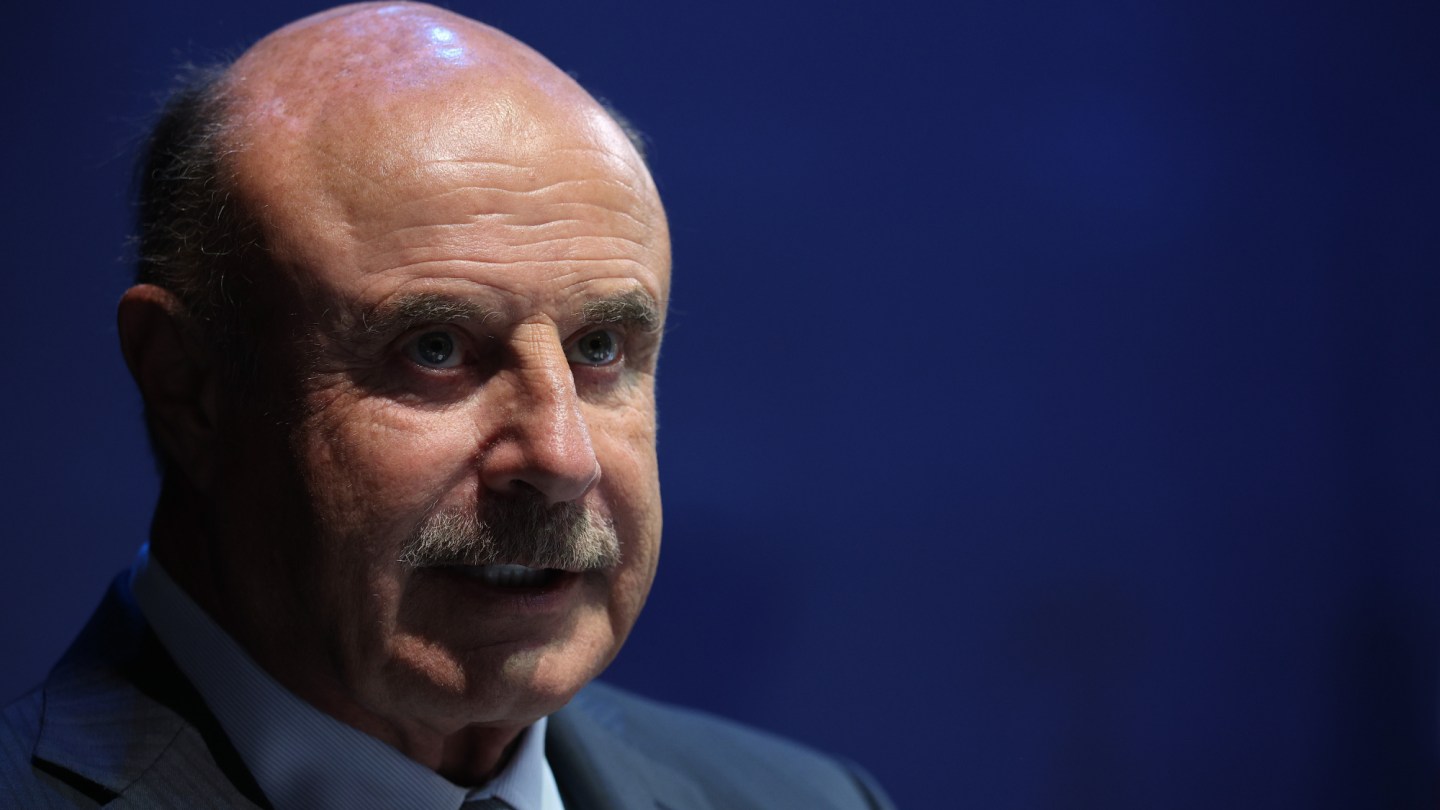
Dr. Phil Loses Trial Over His Media Startup’s Bankruptcy
Dr. Phil has lost a trial that will decide the fate of his media startup’s bankruptcy, a case that involved allegations that he plundered the company to set up his new venture.
U.S. Bankruptcy Judge Scott Everett on Tuesday turned down a bid by Dr. Phil to keep the case in Chapter 11, which would’ve allowed him to steer the bankruptcy. It will now proceed as a Chapter 7 liquidation. A trustee will oversee the sale of Merit Street’s assets, including what’s left of its media library, and litigation over whether the TV host swindled Trinity Broadcasting under a $500 million, 10-year deal.
In the decision, the court pointed to evidence indicating that Dr. Phil, whose surname is McGraw, deleted incriminating text messages and that he’d try to game the bankruptcy by paying certain favored creditors over others.
“Candor to the court is critical,” Everett said in the bench ruling. He stressed that McGraw’s “business was as dead as a doornail when the bankruptcy was filed.”
In a statement, a spokesperson for McGraw’s production banner, Peteski, said an appeal will likely be filed. “We respectfully disagree with the court’s ruling and take issue with its comments concerning Dr. Phil McGraw,” she said. “Dr. Phil is a leader of the highest integrity whose actions reflect honesty, ethics, and a life-long commitment to helping people.”
Merit Street is simultaneously in bankruptcy court and suing Trinity Broadcasting for breach of contract over its downfall. At the same time, the TV host is launching an entirely new venture called Envoy Media, which was created a day before Merit Street filed for Chapter 11 protection.
After Merit Street initiated bankruptcy proceedings, Trinity Broadcasting sued the company. The trial determined the legitimacy of Merit Street’s Chapter 11 filing.
At the heart of the decision: McGraw’s plundering of Merit Street. In an unusual twist, the TV host conditioned a loan to the company on it winning its lawsuit against Trinity. His production banner, Peteski Productions, was the proposed debtor-in-possession.
“This case is an anomaly,” Everett said, choosing to convert the case to a Chapter 7 liquidation since McGraw planned to pay “favored creditors and not pay disfavored creditors, as his own texts show that he want to do.”
The creditors include Professional Bull Riders, which has roughly $181 million in claims. It split from Merit Street last year after missed payments for media rights fees, pulling its content from the network midseason.
“Dr. Phil’s Merit Street Media reneged on its agreement with PBR after just five months for no valid reason, and then Dr. Phil attempted to skirt obligations a second time through a bankruptcy scheme the court called an ‘anomaly,’” the company said in a statement. “We’re grateful they did not allow it. We look forward to continuing this process, which thanks to today’s ruling, will be overseen by an impartial trustee, to recover what we’re owed by Dr. Phil and his company.”
When he took the stand last month, McGraw challenged accusations that he improperly filed for bankruptcy, emphasizing that he did everything he could to keep Merit Street running.
“I’m like the little engine that could,” he said, referring to the months leading up to the bankruptcy in which Merit Street was starved for cash. “I’m doing everything I can to keep Merit up and running. This theory, that this was all a ploy to set up Envoy Media, is absurd.”
He added of his decision to file for Chapter 11 protection, “I didn’t make the decision to file for bankruptcy. I capitulated.”
Among the main issues at trial was alleged maneuvering by McGraw to gain majority control of Merit Street to secure lucrative investments from family and friends at a $425 million valuation. Relying on that representation, Trinity Broadcasting increased McGraw’s stake in Merit Street, via his production banner Peteski, to 70 percent while diluting its own stake to 30 percent.
Once the deal was finalized, McGraw described the plan as a “gangster move” to reduce the network to nothing more than a “passive minority investor,” according to Trinity Broadcasting’s lawsuit.
The TV host maintained during testimony that the deal was beneficial for both sides.
Under a purported $500 million, 10-year agreement, Trinity Broadcasting would provide production and distribution services to Merit Street and Peteski, in turn, would provide new content, including 160 new episodes.
The relationship turned sour last year when it became clear that McGraw couldn’t deliver the viewership numbers, product integrations and advertising revenues he promised to Trinity Broadcasting, the company alleged. It said it spent more than $100 million by the end of June, some of which had to be recorded as loans to Merit Street. That figure ballooned as Trinity Broadcasting continued to funnel up to $13 million into the production per month while McGraw failed to deliver a single episode, though a spokesperson for the TV host has said that 214 new episodes of Dr. Phil Primetime aired on Merit. (The vast discrepancy about what “delivered” entails and which episode orders factor into the Trinity deal mean there’s a lot of fine print in dispute.)
First Appeared on
Source link






